A Study of Acts: Paul Travels to Corinth
Acts 18:1-4 - When you visit a place that is important in the New Testament, that brings Scripture to life for believers!
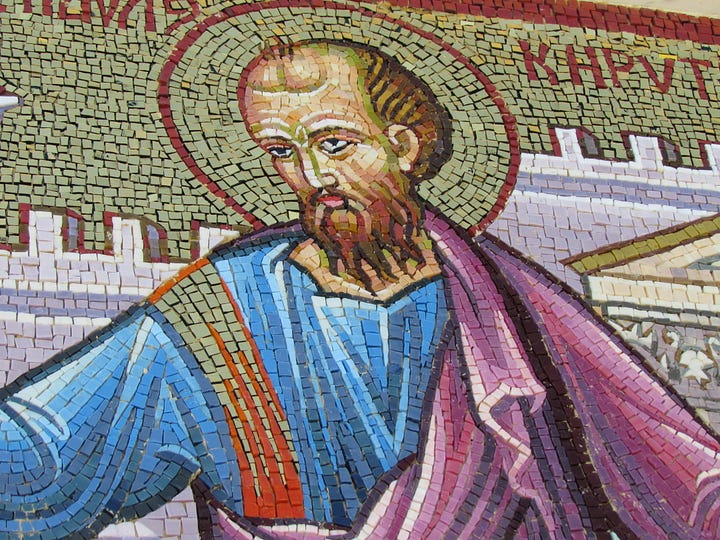
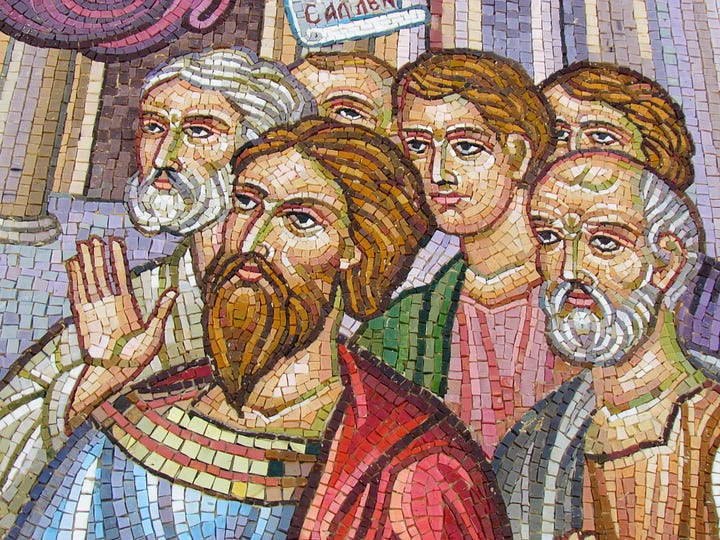
“After these things he left Athens and went to Corinth. And he found a Jew named Aquila, a native of Pontus, having recently come from Italy with his wife Priscilla, because Claudius had commanded all the Jews to leave Rome. He came to them, and because he was of the same trade, he stayed with them and they were working, for by trade they were tent-makers. And he was reasoning in the synagogue every Sabbath and trying to persuade Jews and Greeks.”
Acts 18:1-4 NASB1995
After his experiences in Athens, Paul left and traveled to Corinth. This city was about 50 miles due west of Athens. On our first visit to Athens in 2011, we did a private tour that included a side trip to Corinth. The mosaics in the photos above were in an outdoor courtyard of the Greek Orthodox Church of St. Paul, located near the ancient ruins of the city of Corinth. The mosaics depicted the life of Paul and were quite beautiful. I love mosaics as an art form, so these were a treat to see.
Here’s a map from Bibleatlas.org showing the location of Corinth with Athens for reference:
So what do we know about Corinth? Apparently, this bustling city gave Sodom and Gomorrah a run for their money. Here’s a good description of Corinth in the time of the Romans in Precept Austin:
Corinth was a maritime city located between two important harbors, the port of Lechaion on the Gulf of Corinth (Adriatic Sea) about two miles to the north and the port of Cenchreae on the Saronic Gulf (Aegean sea) about six miles east of Corinth. Because of this strategic location Corinth had an extensive commerce and became celebrated for its wealth, magnificence, and learning.
Corinth was a great entertainment city. It was esteemed as the light and ornament of all Greece; it was, however notorious for its luxury, looseness of morals, and licentiousness. "To live as at Corinth" was a proverb signifying profligate living, and to call a woman "Corinthian" was to pronounce her infamous. The famous Isthmian games which were celebrated in Corinth every other year and were second in importance only to the Olympic games held every four years. The gladiators were particularly popular in this city that loved bloody sports.
Corinth, with a transient and cosmopolitan population, was a center of commerce and industry. Slavery was one of the factors that brought so many nationalities to Corinth. The city had an estimated population of 600,000 (some say up to 750,000 but others say it was much smaller). It has been estimated that 400,000 of these were slaves, many of whom were talented and cultured people. Pfeiffer and Vos note that "much of the population was mobile (sailors, businessmen, government officials, et al.) and was therefore cut off from the inhibitions of a settled society" (Wycliffe Historical Geography)
Corinth was also a major religious center where the ancient Greek gods and goddesses were still worshiped. Eastern mystery religions were popular and the Egyptian religion of Isis was a favorite of many. The Jews had a synagogue there. The most famous cult there was that of Aphrodite. In the old city of Corinth the worship of Aphrodite was popular. Aphrodite was worshiped elsewhere in Greece, but her worship took a unique form in Corinth. The mixture of sexual immorality and religion was similar to the Baal worship of Old Testament times. In fact, the worship of Aphrodite in Corinth was probably an imported version of the Phoenician worship of Astarte (Astoreth or Ashtoreth in Old Testament). Astarte was the female consort of Baal. We cannot be sure that this blend of religion and immorality was still practiced in Paul's day, but it seems very likely. In light of the rampant immorality that had free reign in the lives of the people of Corinth, Paul had to give the church much-needed instructions about sexual purity in 1 Cor 6:12-20.
Corinth was destroyed in 146 B.C. and lay desolate for about 100 years until Julius Caesar rebuilt the city in 44 B.C., after which it quickly became an important city in the Roman Empire. An overland shiproad across the isthmus connected the ports of Lechaion and Cenchreae. The Corinthians controlled the east-west trade across the isthmus as well as trade between Peloponnesus and the area of Greece to the north. Cargo from ships was unloaded, transported across the isthmus, and reloaded on other ships. Small ships were moved overland on a road composed of wooden rollers over which men pulled the ships. In AD 67 Nero began work on a canal, but one was not completed until 1893. In this way the ships were able to avoid the 200 miles of treacherous travel around the southern tip of Peloponnesus.
Paul arrives in this city and meets two Jews who were exiled from Rome by the Emperor Claudius, Priscilla and Aquila. It is not known for certain that they were Christians at the time they met Paul, but they certainly became important for the church after this time. They were tentmakers, just like Paul, and he stayed with them. As usual, Paul found the synagogue and spent time there every day reasoning with the Jews and God-fearing Greeks.
Here’s what Enduring Word says about the exile of Jews from Rome and Priscilla and Aquila:
And he found a certain Jew named Aquila…with his wife Priscilla …and he came to them: It is implied, though not clearly stated, that Aquila and Priscilla were at this time Christians. But it is possible that Paul led them both to Jesus as they worked together as tentmakers (those who worked with leather).
This began one of the important friendships of the New Testament – Paul and Aquila and his wife Priscilla. Paul called them his fellow workers who had risked their own necks for my life (Romans 16:3-4).
“Priscilla is a diminutive form of Prisca, which is one of the great families of Rome. She was probably related to this family in some way.” (Hughes) In half the mentions of this New Testament married couple, Priscilla’s name is written first – which is said to be unusual.
For by occupation they were tentmakers: Paul’s tentmaking was an important part of his ministry. Though he recognized his right to be supported by those he ministered to (1 Corinthians 9:7-14), he voluntarily supported himself in his missionary and preaching work so that no one could accuse him of seeking converts for the sake of enriching himself (1 Corinthians 9:15-18).
In the modern missions movement, people call any work that a missionary does to support himself on the mission field tentmaking.
“In Judaism it was not considered proper for a scribe or a rabbi to receive payment for his teaching, so many of them practised a trade in addition to their study and teaching of the law.” (F.F. Bruce)
Because Claudius had commanded all the Jews to depart from Rome: The Roman historian Suetonius wrote that Claudius banished Jews from Rome because they were “indulging in constant riots at the instigation of Chrestus.” There have been many attempts to explain who Chrestus was, but a likely solution is that Suetonius referred to Jesus Christ, but writing some 70 years after the events, had the name somewhat mixed up. It seems that the expulsion had to do with “dissension and disorder within the Jewish community of Rome resulting from the introduction of Christianity into one or more of the synagogues of the city.” (F.F. Bruce)
Chronology is often a tricky matter, but it seems that this expulsion of Jews from Rome occurred at about A.D. 49.
In a departure from my normal devotionals, here is a gallery of photos we took in Corinth on that visit in 2011. I have never forgotten this place and always think of Paul spending time there preaching and then writing two of the most wonderful epistles to the church in Corinth:
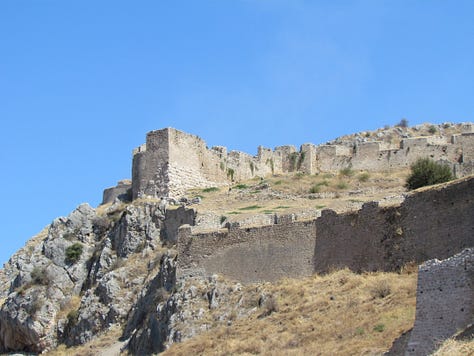
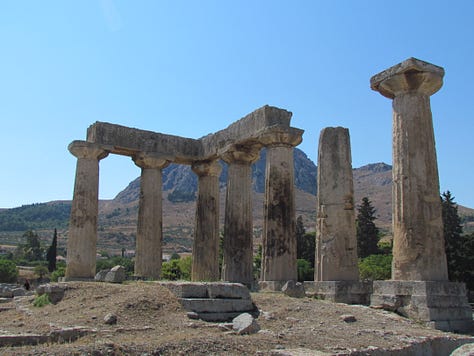
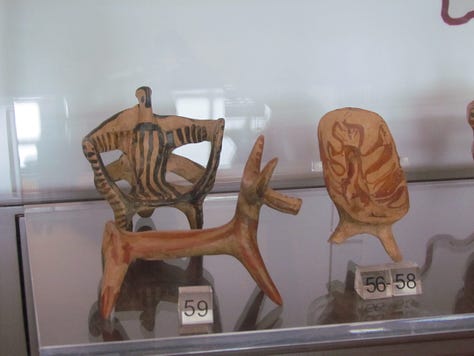
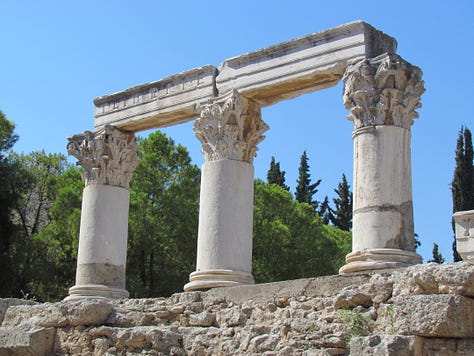
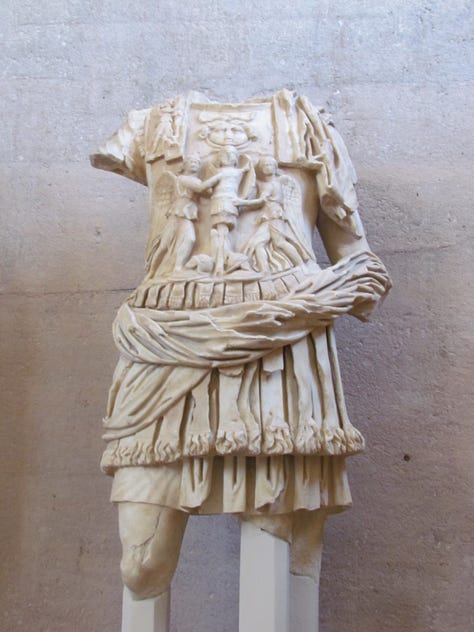
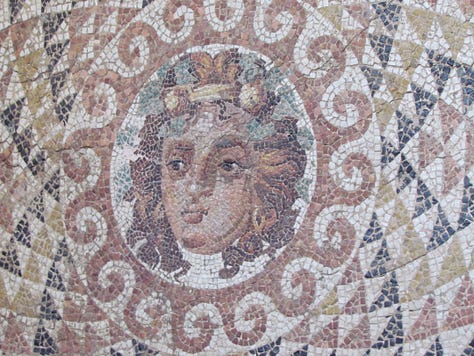
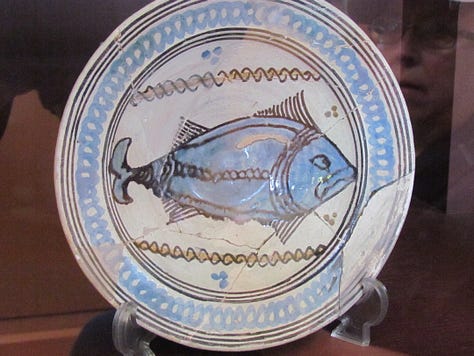
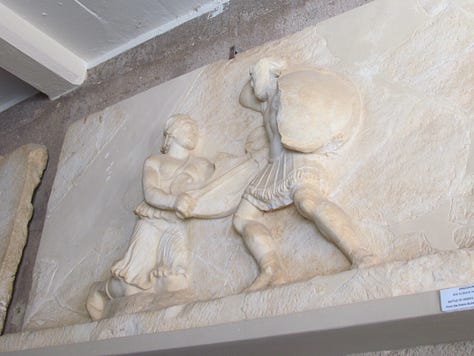
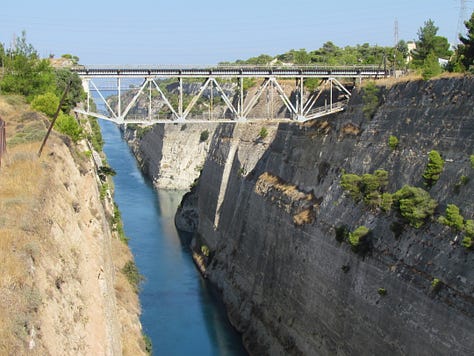
My next devotional examines Acts 18:5-11 - Paul settles in Corinth and has a vision.
Heaven on Wheels Daily Prayer:
Dear Lord - I am so grateful that we were able to see some of the places mentioned in the Bible on our travels, especially the city of Corinth, Greece. Amen.
Scripture quotations taken from the (NASB®) New American Standard Bible®, Copyright © 1960, 1971, 1977, 1995 by The Lockman Foundation. Used by permission. All rights reserved. lockman.org
The Bibleatlas.org was accessed on 12/9/2024 to review maps of Corinth.
Precept Austin was accessed on 12/9/2024 to review commentary for Acts 18:1-4
Enduring Word commentary by David Guzik is used with written permission.



